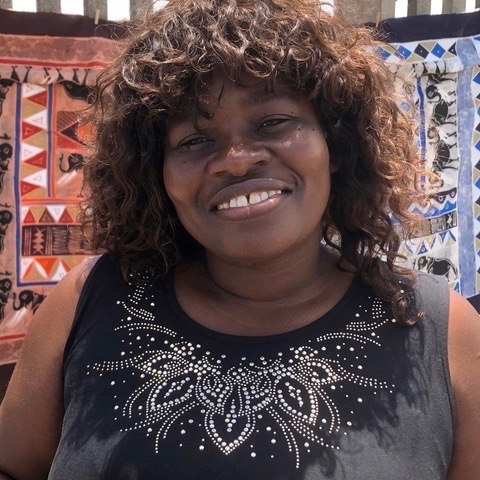My husband, John, never takes my belief seriously unless he’s ill, which fortunately, is rare, then he’ll grasp at any straw. It makes me think of the many people who, late in life, search for a belief to prevent the door from closing on the possible end-of-life options for the after-life. I, as a recognised Zulu sangoma or a witch-doctor, as some white people once called people like me, understand the spirits and medicines of South Africa and that gateway at life’s end.
I love John’s subtle glances while I get dressed, which have not ceased after 20 years of marriage and 4 children. He’s not so bad himself, but there again we both keep in good shape. He’s often complimentary at my choice of colourful loose-fitting skirts and tops with matching high-heels when we are out. However, he gets quite embarrassed when I’m dressed for business. He won’t hang about watching the singing and me dancing with other sangomas on scrubland or on the beach during ceremonial occasions, but he’ll always drop me off and collect me afterwards. And I never need to remind him to get the box of what he calls ‘fancy dress’ out of the cupboard. He even checks it all for last minute repairs and lays it out on the bed for me.
The short skirt, (‘very’ short as John never fails to tell me), is one long piece of leather. It wraps around my waist with a cowhide belt that fits snuggly over my hips. The decorations on the skirt make it extremely heavy. I’ve never counted the number of cowry shells but I think there must be at least five hundred. The twelve sheep’s bladders must be at least 50 years old and look like transparent granadilla fruit, wrinkly and hard. Each hangs from a hook sewn onto a square of coloured fabric, which is joined to the skirt with a leather thong. Years ago, John gave me twenty modern bells to go onto my impala skin ankle bands and, as always, he’d lay them out with everything else and, as always, I’d put them aside in favour of my old bells and seed pods. The necklace is made of cheetah hide and lourie feathers. It belonged to my grandmother. John says I should at least wear a bra or a bikini top or even a bigger necklace to cover myself up, but he knows I’ll never do any of that. My ancestors didn’t and I’m not going to break with tradition.
I think John is secretly proud of me when he sees Durban’s suburban people glancing at my noisy ankles as I walk with him to the car to go to a ceremony wearing a lightweight coat. He always waits with me until the others have arrived. He greets them in his scant Zulu, and then he takes my coat, helps me clip three ancient pigs’ bladders into my hair, takes a picture of me with his IPhone, kisses me and drives away.
I know John loves me. I don’t earn a lot from what I do, but I love my clients and they always send me gifts once they’re better. I’m not surprised he doesn’t fully understand my ways; our upbringing was so very different. His parents were very welcoming and fussed over the children when we visited his hometown of Tunbridge Wells.
H. E. Roffey

